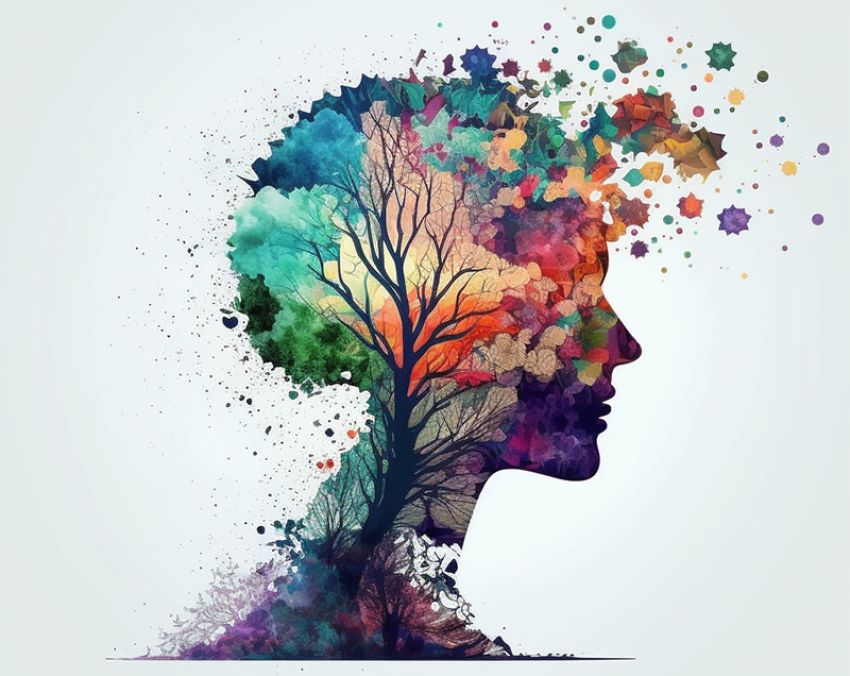The growing number of mental health awareness initiatives and information is prompting people to take a holistic approach to their well-being.
As a result, more people are finding it important to invest in their mental health as much as they do in their physical health.
In recent years, this wasn’t widely adopted, leaving a major aspect of our wellness neglected. But now, we all have incredible access to practices that help nurture and improve our mental health.
In this post, we’ll cover some holistic practices you can add to your daily life to cater to your mental health.
Mindfulness Meditation
Mindfulness meditation has incredible benefits for your mental health, making it an essential daily practice.
Some of these benefits include:
- Better memory and focus
- Improved cognitive flexibility
- Lower stress and anxiety levels

Meditation helps you learn how to stay in the present moment and handle different situations easily. Start small and build from there to make meditation an easy practice to add to your daily routine.
You could commit to five minutes of mindful meditation daily and continue increasing your time as you get better at this practice. If you’re meditating for the first time, you’ll notice that you get lost in thought, which is okay.
Meditation allows you to identify that you are lost in thought and mindfully bring yourself back to the present through your breath. With practice, it becomes easier to stay mindful and completely ignore distractions.
Yoga
Yoga is a physical practice that helps you stay fit and significantly benefits your mental health. It features different poses that you can flow through in your daily routine.

Adding yoga to your daily routine brings incredible benefits, including:
- Enhanced quality of life
- Lower stress levels
- Improves self and body image
- Fosters discipline and consistency
Yoga is an inclusive practice that caters to people of different fitness levels since most of the poses can be modified to suit your needs.
The best part is that this practice focuses your brain and allows you to slow down and get in touch with your body.
Aim to practice yoga a few days a week and then increase your practice frequency as you get better. If certain yoga practices feel too advanced for you, opt for easier options to avoid getting injured.
Clean Diet
The phrase, you are what you eat says a lot.
Therefore, eating right is essential to ensure that you stay healthy. A clean diet will help promote clarity and focus, boosting productivity.
In addition, the right nutrition will help you meet your required vitamins and minerals.
A clean diet should feature different food groups prepared without too much processing. Aiming for natural food products will give you greater benefits and improve your health and well-being.

Eating healthy and clean allows you to include foods that boost your brain power and memory. Some of these foods include:
- Green leafy vegetables
- Fatty fish
- Berries
- Walnuts
- Avocado
Good nutrition is a big part of functional medicine and is an essential daily practice that will help cater to your mental health.
Quality Sleep
Getting quality sleep every day ensures you are well-rested to face your activities without fatigue. Doing this helps reduce stress and allows you to respond better to people and challenging situations.

But, if you wake up feeling sleepy and tired, your stress levels may increase, and your interactions may not be the best. So, to avoid this, having a quality sleep is essential. You can optimize your sleep by;
- Keeping a consistent sleep schedule (i.e. sleep and wake up at the same time daily)
- Staying away from screens at least 30 minutes before sleep
- Having a consistent wind-down Evening routine
- Stretching before bed
Improving your sleep quality will greatly improve your mental health and keep problems like stress and fatigue away from you.
Writing or Drawing
Writing your thoughts through journaling is an effective way to process emotions like stress or anxiety. It allows you to get everything out on paper and later analyze why you’re in that specific situation and find ways to improve it.

Drawing also offers a great opportunity to process emotions and stay in touch with your creativity.
It works as a great therapeutic outlet and can also be used as a meditative practice, especially when drawing one thing repetitively.
Writing and drawing keep your mind stimulated and open to finding different solutions and opportunities. This helps boost your mental health and leaves you feeling great after each session.

















